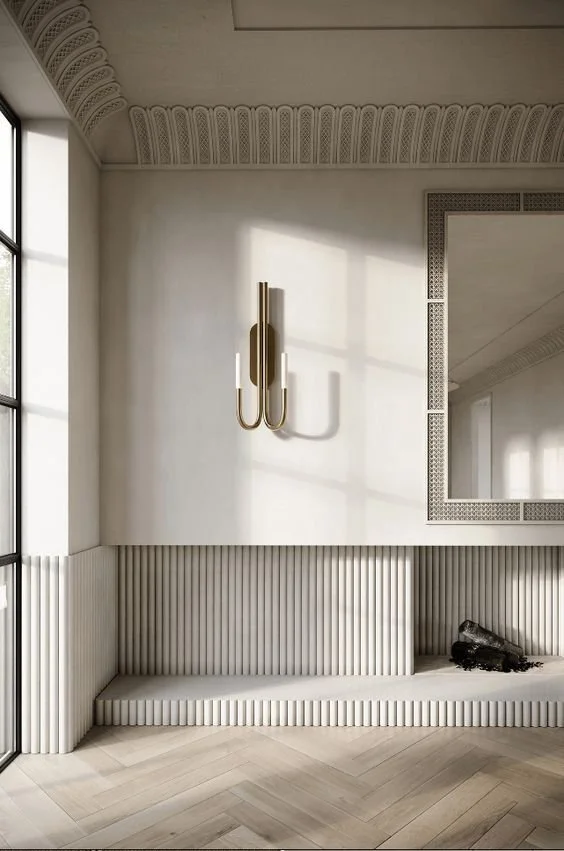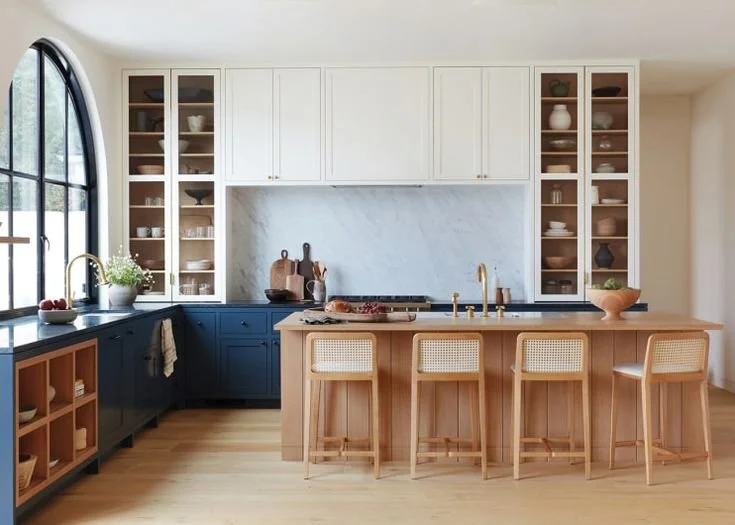Interior Design Blog

Full Home Renovation: A Comprehensive Look at Costs and Challenges
The costs of a full home renovation can vary greatly depending on the scope of the project, the materials you choose, and the location of your home. However, on average, a full home renovation can cost anywhere from $100,000 to $500,000 or more. This includes the cost of labor, materials, and any necessary permits or fees. Keep in mind that these costs can also vary depending on whether you choose to do the work yourself or hire a contractor to handle the renovation for you.

Kitchen Renovation Costs: What to Expect and How to Plan
A kitchen renovation can be a significant undertaking, both financially and logistically. The costs of a kitchen renovation can vary greatly depending on the scope of the project, the materials you choose, and the location of your home. However, on average, a kitchen renovation can cost anywhere from $35,000 to $100,000 or more.
This includes the cost of labor, materials, and any necessary permits or fees. Keep in mind that these costs can also vary depending on whether you choose to create a custom kitchen or opt in for a ready made option.

Bathroom Renovation Tips: How to Design and Update Your Space
Here are some tips to help you plan and execute your bathroom renovation successfully:
Determine your budget: Before you start shopping for fixtures and finishes, it's important to know how much you can afford to spend. This will help narrow down your options and ensure that you stay within your budget.
Consider your style: Do you prefer a modern, minimalistic look or a more traditional, ornate style? Decide on the overall aesthetic you want to achieve before you start shopping for fixtures and finishes.
Optimize your layout: Take a look at the layout of your current bathroom. Is it functional and efficient, or is there room for improvement? Consider whether you want to keep the same layout or make changes to the placement of fixtures.

Holistic Restaurant Design: Putting Customer Experience First
Here at Sansa Interiors, we know that the best solutions begin with exceptional design. And exceptional design is fundamentally holistic in its approach.
At its core, holistic design considers the psychological, physical and spiritual well-being of a space’s occupants. Whether the space is a home, business or institution, a holistic design approach promotes harmony and balance for the people who experience it.
From a restaurant’s perspective, that means tackling your design from a place of deep understanding of your guests: their desires, anticipations, pain points, dislikes, and expectations in order to deliver an experience that is harmonious.
When paired with operational efficiency, which can be codified by a thoughtful approach to layout and technology, a good design will help to ensure that every guest leaves satisfied.

Biophilic Restaurant Design: Enhancing the Human-Nature Connection
What is Biophilic Interior Design?
At its core, biophilic interior design aims to connect us more closely to nature. Designers who employ this approach do so with the hope of improving our impact on the environment, positively influencing our well-being and protecting our planet for generations to come.
Well-executed biophilic design incorporates sustainable design principles that celebrate the natural world. When done well, this approach takes inspiration from nature’s beauty and interprets that beauty as design elements, creating spaces that support our emotional, psychological and physical health.
Utilizing plants and natural light, maximizing views to the outside, favoring natural materials, textures and patterns that are inspired by nature, and incorporating organic shapes are all key elements of biophilic design.

Holistic Interior Design: Designing Wellbeing into Your Home
At its core, holistic interior design is an approach that considers the psychological, physical, and spiritual wellbeing of a space’s occupants. Whether the space is a home, business or institution, a holistic design approach promotes harmony and balance for the people that use it.
To achieve this desired harmony, holistic interior design draws on multidisciplinary teachings. It combines the thinking and philosophies behind biophilic design, colour psychology, human biology, ergonomics, and others to inspire thoughtful design decisions that, when done well, support the overall health and wellbeing of a person’s mind, body and soul.

How to create a functional restaurant layout?
The importance of a functional restaurant floor plan .
While customers may not notice it, the configuration of your restaurant and the relationship between seating, bar and kitchen can make a huge difference. For staff, these decisions mean the difference between a seamless service and getting trapped in unnecessary bottlenecks that can impact your diners experience, too.

What does an Interior Designer do?
From Concept to Completion: What does an Interior Designer do?
If you’re feeling like your space needs a fresh new look, it might be time to consider a remodel. But making the decision to redesign your home, restaurant or commercial space is a big commitment – financially and in terms of time, energy and effort. To make the design process as smooth as possible, and get the result you’re looking for, it’s important to hire the right professionals for the job.
In this blog post, we explore when an Interior Designer would be the right choice, and how they can help make your design dreams a reality.

How To Choose Flooring: A Step-By-Step Guide
Confused about how to choose the right flooring material for your design project? We get it! The options are nearly endless, and the selection process may feel overwhelming.
Choosing flooring is far more complicated than just finding the best-looking product. It requires thoughtful planning not only from an aesthetic perspective, but from a functional perspective, too.


Interior Design and Mental Health: Five Ways Your Home Can Make You Happier
Can interior design really play a role in improving our mental health? The answer is, yes! Many interior design techniques and approaches have been proven to reduce stress and depression. A few components in particular – effects of sunlight, spaciousness, connection to nature, colour and functionality – are just a few of the most impactful considerations that, when used correctly, can create an environment conducive to improving our mental health and physical wellbeing.

How to Add Greenery to Your Home: Your Guide to Nature Inspired Interior Design
At Sansa Interiors, we’re continuing to see a demand for nature inspired home design, even with less restrictions in place.
Natural materials like rattan and jute are replacing synthetic fibres like velvet; an eclectic mix of light and dark woods is being used to create a homey, organic look; and houseplants are put on every available surface to give a room a touch of the exotic

Kitchen Relocation - The Pros, Cons, and Costs
Relocating your kitchen is more economical than moving house. Find out more about the pros and cons of a kitchen relocation, plus the costs involved, inside.







5 Simple (and Inexpensive) Ways to Upgrade Your Living Space
Lately, “there’s no place like home” has taken on a whole new meaning. Your space should act as a safe haven, but after staring at the same four walls for an entire calendar year, perhaps it’s become plain that your university era-dotted apartment (looking at that nearly decade-old Billy bookcase) is due for some sprucing. Here, we tapped five design pros for their budget-friendly fixes that’ll transform your drab digs into a mature, considered space.
